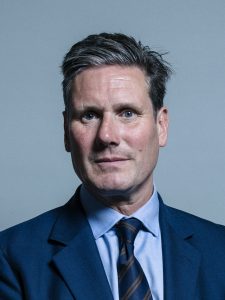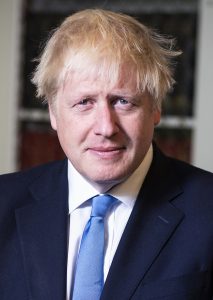The State of Sustainability in UK Politics



Every autumn, without fail, I watch the leaders’ speeches at the big three political party conferences. Until this year. I don’t know if it’s my endless diet of Zoom/Teams meetings, but I just didn’t fancy watching a set of middle-aged men pontificating into the camera without the frisson of live crowd reaction. We live in strange times…
But I have watched elements of each of the speeches, and read the transcripts, so I can do my usual round-up of the Sustainability content of each. My contention is that no matter how Sustainability-heavy the rest of each conference is, the Leaders’ speeches are a good indicator of the true level of commitment. Although, again, this year things might be a little different…
Before we start, in the interests of transparency, I need to declare that I’m a Liberal Democrat Councillor, but I do try to be as fair as possible on these assessments.
First up was new Labour Leader Keir Starmer. His speech had one core message: “I’m not Boris Johnson and I’m not Jeremy Corbyn [his far-left predecessor].” Starmer was elected Leader on a sub-Corbyn manifesto and is in the middle of the inevitable pivot away from that position, so the speech was pretty much devoid of any policy announcements. There were 3 or 4 passing references to a green economy and international leadership on climate change, but there was nothing really of substance in there. So, from a sustainability point of view it was a bit underwhelming.
Next up was similarly newly elected Liberal Democrat Leader Ed Davey, who served as Energy and Climate Change Secretary 2012-2015, so you would expect a substantial Sustainability passage and he didn’t disappoint. Bigging-up his achievements boosting the green economy in office, he floated some broad policy ideas: turning redundant office buildings into sustainable, affordable homes, switching investment from Heathrow’s third runway to green zero-carbon flight, and transitioning the UK oil and gas sector into clean tech, mentioning hydrogen for heating and tidal power.
Lastly the Prime Minister, Boris Johnson. Taking the mickey out of his own past dismissal of wind power as unable “to pull the skin off a rice pudding”, Johnson put clean energy in general, and offshore wind in particular, at the centre of his plans to ‘build back better’ pledging to raise offshore capacity from 30 gigawatts to 40 gigawatts in 10 years and invest £160m in ports and factories to manufacture the next generation of turbines. In an interesting pitch to patriotic members/voters he claimed “offshore wind puffed the sails of Drake and Raleigh and Nelson, and propelled this country to commercial greatness.” He went on to mention solar, nuclear, hydrogen, carbon capture and storage, retrofitting homes, and ground source heat pumps, before concluding “Mother nature has savaged us with Covid, but with the help of basic natural phenomena we will build back and bounce back greener; and this government will lead that green industrial revolution.”
So, some analysis. Starmer’s policy platform is clearly a work in progress and one would hope the broad commitment he made in his speech will be fleshed out over time. Davey has ‘been there, done that’, so you would expect some solid ideas which we got, but his speech was really notable for the fact he proposed stopping doing stuff (cancelling the third runway, pivoting the old and gas industry to clean tech). To me, the litmus test of Sustainability Leadership is not so much what you start doing as what you stop doing as that’s the difficult, messy but essential bit. Which brings us to Boris.
Johnson has made a career out of boosterism and it was welcome to hear that untrammelled optimism applied to the green economy from the man who actually has his hands on the levers of power. But I have two misgivings: firstly he didn’t propose stopping doing anything and thus failed my litmus test of leadership. To achieve his green industrial revolution, Johnson not only has to do the fun bit of launching a gazillion green businesses, but also the creative destruction of the brown industry, and I’m not sure the latter is in his character. And character is also the second issue. Johnson’s record of delivering on his rhetoric is patchy at best – the recent disowning of his own ‘oven-ready’ Brexit deal is a case in point. Where he has succeeded is where he gets somebody competent in to deliver the vision – Andrew Gilligan’s role in promoting cycling is a good example – but many recent appointments fall into the chumocracy bracket with sometimes disastrous results.
So, I remain to be convinced. What do you think? Comments in the comments below!
Official Westminster portraits used under the creative commons licence.

